




|
E-mail : dynamicsolutionit@gmail.com Login Help : 📞 01686797756 📞 01722436067 📞 01767798403 Download AnyDesk ... |
+88-01686797756
Login
+88-01686797756 Login |
|
| School & College Management Software |
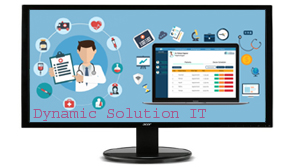
Outdoor,Indoor/Admitted Patient Module, Laboratory Information Module, Radiology Module, Diagnosis Module, Reporting Management Module, Administration Management Module, Doctors Module, Billing and Accounting Module & More...
User Menual Order Now |
| * Facilities of Hospital / Clinic / Diagnostic Management Software |
|
* Multi User System .
* Outdoor,Indoor/Admitted Patient Module * Laboratory Information Module * Radiology Module * Diagnosis Module * Doctor Management * Pharmacy Management * Reporting Management Module * Billing and Accounting Module * Date Wise Collection . * Date Wise Due List . * Date Wise Expenditure . * Date Wise Daily Cash Book. * Date Wise Doctor Ledger . * Date Wise Patient Ledger . * Date Wise Expense Head Ledger. * Date Wise Income Statement. * Date Wise Receipt & Payment * SMS System * Barcode System * Online & Offline System . * Data Backup System . |
| What is Hospital Management System? |
|
In the highly commercialized healthcare industry requirement of a convergent management application is felt more urgently than before. The hospital management system software is a tailor-made application designed to cater to the complex business requirements of a hospital, nursing home and healthcare institutions in keeping track of inpatient, outpatient, doctor availability, medical billing, etc. These are highly specialized software designed to take care of all aspects of a hospital operation. Why a hospital needs centralized Hospital Management Software? Today healthcare is a rapidly growing industry which means it's experiencing a high growth rate in terms of service provided. A central management system works in tandem with the different platforms like sales, billing, accounting, customer care etc. to create a convergent, integrated environment that produces results in real-time. Why comprehensive Hospital Management Software? Hospital software is a central database that stores information related to inpatient, outpatient, doctors etc. Hospital management system offers records in real-time to check the availability of beds, inventory, doctor charges, scheduling of doctor appointment and more POS and billing application to ensure correct and efficient billing with no delay Maintain proper medical and other records and thus, facilitates documentation Helps hospitals in maintaining transparency at every level of operation It offers a multi-user facility which ensures that multiple users can access to the hospital billing software at the same time. Offers efficient staff management and allocation of doctor and staff duty Hospital management system software has become an essential tool for hospital management. Hospital information system allows healthcare institutions to manage their operation and serve patients better. Several of these hospital software work both as hosted application and desktop application. Some vendors also allow significant customization of the application suited to meet the intrinsic requirements of the client’s business. There are now several such hospital management applications are available in the market, like – PulsePlus. It is fully customizable, web-based Electronic Medical Record software (EMRS) designed for students. Important Features to look while buying Hospital Management Software Hospital management software, as the name suggests, is a tool that helps the different departments of a health care agency to manage the operation from a single platform. The hospital management system is designed as a comprehensive tool to take care of all aspects of a healthcare agency’s business, like – all businesses need to track sales and leads generated from different sources. CRM software that helps agencies keeping track of their marketing activities and sales through efficient customer database management, prospect management, pipeline management, etc. Hospital software often performs as a central database system to store real-time information on inpatient, outpatient, doctors, inventories, bed allocation and more. As a user logs into the hospital information system he/she can access all important details pertaining to offer better service to a patient. Most vendors nowadays offer fully configurable and customizable software tools that can be tweaked and upgraded to client’s specific business needs, i.e. new modules can be designed or modified to allow customers operate their businesses better through the software. These hospital management systems are designed to blend seamlessly with an existing set-up, which means these would integrate with the existing platform to create convergent management environment. This application is aimed at managing all aspects of hospital operation and has the following distinct features. Key features of Hospital Management Software Functions as a database to store all patients related information – inpatient as well as an outpatient on real-time Managing patient records and asserting data security and confidentiality Manages the availability of doctors and scheduling appointment Staff management and allocation of duties Managing laboratory equipment Managing ward and bed allocation Inventory management with the timely warning system for stock refurbishment Accounting and correct billing Lead management and appointment management functions Multiple user accessibilities for efficient all-around performance Advantages The data is updated and stored in real-time Ensures data security and prevents misuse of information Hospital software Provides complete history on a patient regarding the past and current treatments being offered Helps with documentation as required by internal laws Offers transparency and integration between different departments and ensure the smooth functioning of a complex hospital environment As a convergent platform, a hospital management system integrates between different existing set-up Reporting is another important feature of a management application. It produces various types of accounting and other reports The important factor in selecting the right hospital software is to understand and analyze internal business requirements. There are applications which are suitable to meet requirements of middle-level and large organizations, whereas some are good for managing small institutions. Crucial Hospital Management Software Modules Hospital management software is a set of services aimed at creating a unified work system of all medical departments. It should meet the requirements of the healthcare centers as a whole and integrate the work of all medical arena. A powerful healthcare software can organize the whole major functional area of a multi-specialty hospital with its several modules. Some of the crucial modules include: 1. In- and Out-Patient Management Hospitals are the most complex healthcare units with different and huge departments to look after the patients. Keeping track of both in- and out-patient — records of admission, rooms, consultants, surgeons, billing, and more needs co-ordination among both medical and non-medical departments. This module eases out the whole process by efficiently managing and combining all departments needs together. Provides instant access when it comes to admission of patients and availability of beds Enables doctors to take better care of their patient by having fast access to patient’s information. It allows them to make timely diagnosis and treatment decisions Patient visits can be easily categorized into new and revisit Manages new requests and results of laboratory tests and other examinations Automates day-to-day administrative activities such as generating unique admission number for each patient Easily manage discharges and transfers as well Creates and manages invoice, payment due, and advance payment Generates reports daily, monthly, yearly or by date with ease 2. Doctor Management Doctor module is another important module of hospital management software that helps gather full information about the services of doctors. It allows the doctor to diagnose patient, assign treatment procedure and test, and generate a prescription for the same. Enables doctors to record patient symptoms, allergies, and give treatment details Allows them to keep track of their appointments schedule Keep records of inpatients and outpatients under their care Access to drug database to write a prescription 3. Pharmacy Management Using healthcare software, hospitals can build up a database of drug care history. Pharmacy module automates the general workflow, thus improving the accuracy, safety, and performance of pharmacy. Takes care of drug distribution and management of inventory — reorder, refill, and hold capabilities Easily retrieve, review, revise, and print patient profile and prescription history Conducts the distribution of medicines to the patient more effectively Makes the whole process of issuance of medicines fast and reliable Reduces workload by linking patient’s pharmacy billing to the main billing and automatically transferring the amount 4. Laboratory Management Laboratory module of hospital management software seamlessly streamlines the workflow of diagnostic centers/pathology laboratories — right from raising a test request to reporting the results to the concerned doctor or department of the hospital. Effectively performs lab tasks — specimen sample collection, requisite test and results entry Easily track the status of the test and update about the same Sends out system alerts in case the doctor requires an urgent lab test result Generates billing for both inpatients and outpatients Sends out SMS/email to patients when results are available Maintain external laboratories list and also offer a detailed view of all the samples sent out to other laboratories 5. Staff, HR & Payroll Management Allows registering of each and every staff members of the hospital. Complete payout structure can be determined and processed using hospital management software. Moreover, the consultant doctors can be cataloged with a separate block of consultants making it easy to access the database. 6. Reception Management Reception module as a service unit of hospital management software automates the daily activities of the front office of the center. It assists in carrying out the day-to-day operation in an effective manner by handling patients/doctors related queries, the timing of the consultant, patient room search, etc. It improves the quality of services provided to the users. 7. Operation Theatre Management Hospital management software should be able to keep track of all type of surgeries or operations that take place in the hospital. Operation theatre module allows for scheduling theatres, recording the operation details, maintaining equipment details, and other related services. Furthermore, one can easily search through a patient’s details who has gone through operation before. It includes their operation type, room number, and date of the surgery. 8. Electronic Medical Record (EMR) EMR module is designed to eliminate paperwork from the hospital and improve clinical productivity. It provides access to relevant information about patients and removes any loops in communication by integrating the entire system. Thus, hospital management software can provide high-quality, cost-effective, and efficient patient care. 9. MIS Reports Management information system report is one of the most important modules of hospital management software. It allows for analyzing and monitoring of each department by the top management of the hospital. Latest Technology Trends in Hospital Industry Healthcare industry is taking a leap towards a digitalized world. Technological trends in healthcare are focused on bringing real-time results. Today, medical institutions rely on big data and analytics to treat a health problem with more responsibility and take better care of their patients. Some of the technological trends in healthcare that is going to be dominant in 2020 are: Artificial Intelligence (AI) AI is transforming the healthcare industry. It has several implications on various fields of the healthcare industry such as clinical trials, wellness management, disease management, diagnosis and treatment, patient engagement, and monitoring of the patient. In hospitals, AI helps to make an accurate diagnosis based on a patient’s EHR information. AI analyzes all information, symptoms, and past treatments to envision the health problem of the patient and solve it. For these reasons, it is essential to integrate AI technology to the hospital management software or the healthcare app today to stay relevant in the future. Internet of Medical Things (IoMT) The Internet of Medical Things (IoMT) means various devices are connected to each other through the internet. It is used for remote monitoring of patients’ well-being through the means of wearables, thereby reducing the costs of healthcare solutions. IoMT is contributing sensors and systems to capture data and deliver it accurately. It allows doctors to analyze and predict health trends. Augmented Reality/Virtual Reality (AR/VR) AR and VR offer feasible solutions to many challenges of the health care system. These technologies are revolutionizing the healthcare industry. It can be easily implemented in various areas such as medical training and general diagnostics. They improve the overall patient experience and make it less problematic by adding navigating features among other things. For instance, AR can help the patient to keep track of their vital stats and stay tuned with their therapy progress in a more engaging manner. It is also used my specialist in mental health to treat patients who can’t come to the medical centre for the usual treatment. Telehealth Telehealth is the use of digital information and communication technologies, such as computers and mobile devices, to remotely monitor patients’ health. Thus, it helps improve health care access and outcomes, especially for chronic disease treatment. It reduces the demands on crowded facilities and makes the health sector more resilient. Telehealth technology trend will help patients become more engaged with routine checkups and will form a stronger relationship with their doctors. Blockchain One of the biggest challenge of healthcare software IT is to create highly valuable virtual records of patients and transparency between drug manufacturers and customers. The blockchain technology advantage is that it enhances security, interoperability, and protects privacy breaches. In short, it places the patient at the core of the healthcare ecosystem. It helps manage endless data including insurance claims, patient health information, and electronic health records and keeps them safe and secured. Overall, these cutting-edge technologies embedded in healthcare software are heading towards enhances patient care, preventive care, cost-effectiveness, and big data processing. Benefits of Hospital Software & Potential Issues with Hospital Management System Health care is a crucial service that needs dealing with heaps of documents, papers, forms, etc. As healthcare as an industry is rapidly growing, the volume and cost of document management are steadily increasing too. Not only it requires an efficient hospital information system but is also crucial for streamlining the daily operation of the institution. In most part of the world hospital, nursing homes and healthcare institutions are highly regulated regarding documentation and management. Hospital management software is a complete tool that manages all aspect of administrative, management as well as the marketing of a hospital to allow them and doctors to serve better. Following are the major advantages of virtual hospital software in today’s evolving healthcare industry. Marketing and Sales: A hospital needs an efficient hospital management system that will track its marketing and sales performance. It is designed as a comprehensive system to track all leads generated from all sources and deliver it on a consolidated platform. Similarly, the software doubles as a point of sales software that records patient’s details and transaction histories for future references and in turn plays an important role in determining increasing sales volume. An efficient inquiry system will save precious time and effort by offering consolidated information. Accounting and Administrative: The second most important purpose that hospital software satisfies is the tracking of accounting and financial transaction. It helps hospitals maintaining transparency and therefore facilitates auditing. It functions as a central repository of patient’s records offering real-time data on a convergent platform and thus helping hospitals in abiding by data security and confidentiality rules set by authorities. Currently, there is a great deluge of hospital management software and similar tools. And hence, it is important to select the software application appropriate for your complex business requirements. If we are to made a few suggestions those will be Visual Hospital Management, Medismart, Elixir, etc. 7 Reasons Why Clinic Management Software is Must for Clinics Clinic management software Gone are the days when keeping patients’ records and maintaining appointment schedules was a herculean task at the clinics and hospitals involving various administrative and functional inefficiencies. The medical industry in India has welcomed Clinic Management Software with open arms. The advanced software technology has transformed the way the health industry worked in the earlier years. Clinic management software offers innumerable services with their innovative and wide features. The competent software can keep the entire patient record including address, gender, age, drug sensitivity to various other records like lungs chart, heart chart, weight and height charts, and much more. It prints out prescriptions, patient records, billings, diagnostic reports, and other certificates. It maintains the accounting system, appointment schedules and also the stock of medicines. Benefits of using a CMS (Clinic Management Software) 1. Paperless Record System The basic advantage of using clinic software management is that it helps you get rid of all the manual paperwork. They are not only difficult to store and maintain but also prone to wear and tear. The software includes the module ‘electronic health records’ which maintain all the necessary documents and information in its system. A few features of an effective electronic health record system, Establishes effective clinical workflows Removes the need for storing, managing, and retrieving bulky paper records Gives you easier access to clinical data Has the ability to gather and analyze patient data that enables outreach to a discrete group of populations 2. Easier and Quicker Access to Patient’s Records and Other Data It’s vital for any healthcare provider to be able to track, store, and access patient’s medical records with ease. With the help of clinic software management, one can easily record, update and archive crucial patient data within the system for access at future encounters. The system produces the record in the form of a flow sheet for each patient. You will find details like previous diagnoses, surgeries, chronic issues, test results, immunizations, and more on it. When needed, the doctor can have a glance at the entire history of the patient at the click of a button. Moreover, it’s worth noting that some software offers its own charting module, while others integrate easily with third-party EMR/EHR solutions. 3. Coordination Between Various Departments With an integrated system of maintaining records, such software allows the doctors of various departments to coordinate with each other in order to assess a patient’s condition better. Additionally, the cloud-based system like practo, doc-engage, make it increasingly easier to collaborate. We had tremendous feedback on this article: How cloud software competes with the offline software in this article. 4. Improved Efficiency Clinic management system improves the general efficiency of the organization by automating the entire system. The software helps in streamlining every element of a healthcare center. Some of which includes recordkeeping, printing out prescriptions, charting, scheduling patients’ appointments, and billing functions. It also maintains accounts and inventory. Automated process management saves time for medical staff to focus on more important tasks at hand. This increases their productivity and they find their job more fulfilling. As such the operating cost of the clinic is minimized and the efficiency of the staff is improved. If you look at it another way, patients who receive quality care is also more likely to recommend it to their friends. This means more patients will result in more profits. 5. Patient Satisfaction One of the most valuable features of clinic management software is scheduling. It means the patients don’t have to call and make appointments via telephone. They can book their own appointments online at any time of the day. They have 24/7 access to their portal. In fact, they can also cancel and reschedule appointments if they want. Furthermore, the scheduling module sends out automated appointment reminders to the patients via email, text, and call so that they don’t miss it. Moving on, the system also reduces the waiting time for patients at the clinics. The system tracks and manages the patient encounter before they even walk in the door. It then generates electronic intake forms for them to fill out prior to their visit. This helps in streamlining a patient’s hospital visit. Thus, it reduces wait times which is otherwise spent filling out forms in person. The patients now receive hassle-free treatments at automated medical centers. The patients also do not have to worry about storing their prescriptions as they know that their data is stored at the doctor’s clinic. The clinic software can really prove to be useful for healthcare centers to increase patients’ satisfaction. 6. Accuracy Electronic health records are error-free. It eliminates the chances of mistakes caused by humans hands as all the tasks are automated. For instance, implementing clinic software does away with the chances of wrong treatment due to the wrong diagnosis. Furthermore, there are printed prescriptions that are easy-to-read. It reduces the chances of getting the wrong medicines due to illegible handwriting of the doctors. Not only that, it’s the same case with medical billings. It is one of the important elements of healthcare centers. Clinic management system offers billing modules that reduce the stress of managing the revenue cycle process. During the billing process, it can be difficult to keep track of everything that needs to be done. The module tracks insurance claim status and coordinates billing with insurance providers. This ensures that the claims are processed quickly and accurately. Thus, this feature sees to it that both the patient and institution is on the same page about copays and deductibles. 7. Speedy Service Clinic management system saves the time of writing prescriptions, calculating and making bills, filing and hunting for patient records and also maintaining appointment schedules. As such, doctors can pay more attention to their patients and give them speedy and better service. |
| * POS | Super Shop Software |
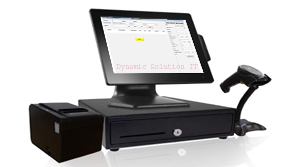
Purchase, Sales, Stock, Barcode or Menual System, Cash Book, Party Ledger, Receipt & Payment, Income, Expense, Daily Sales, Daily Purchase, Customer Due, Supplier Due, Profit & Loss and More...
Read More ... Order Now |
| * Computer | Mobile | Electronic Item Shop Software |
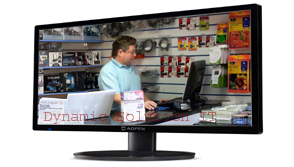
Purchase, Sales, Stock, Warranty, Gurrantee, Repair list, Gift, Barcode or Menual System, Cash Book, Party Ledger,
Receipt & Payment, Income, Expense, Customer Due, Supplier Due, Profit & Loss and More...
Read More ... Order Now |
| * Software & Web Design Developing |
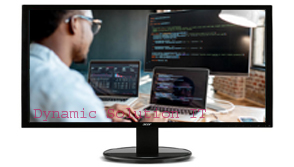
Requirement Study, Analysis, Planning, User Friendly,
User Acceptance Testing, Quality Assurance, Designing, Programming,
Final Testing, Training, Delivery & More...
Read More ... Order Now |
| * Accounts,HR & Payroll Software |
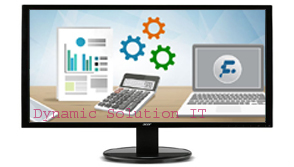
Customer Ledger, Supplier Ledger, Bank Ledger, Employee Profile, Employee Attendance, Employee Ledger, Salary Out, Income Statement, Expense Statement,
Cash Book, Receipt & Payment, Trail Balance, Balance Sheet, Profit & Loss and More...
Read More ... Order Now |
| * School & College Management Software |
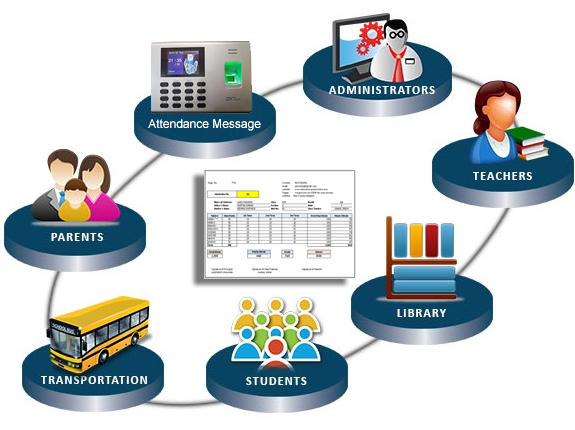
Student, Teacher, Employee Profile Entry, Attendance System & Reporting with mobile sms notification,
Result Processing & Publishing in Website, Student Due Reports, Accounts,
Any Notice Sent to Guardian Mobile Using Messaging System & More...
Read More ... Order Now |
| * Hospital | Clinic Management Software |
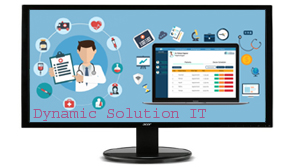
Outdoor,Indoor/Admitted Patient Module, Laboratory Information Module, Radiology Module, Diagnosis Module,
Reporting Management Module, Administration Management Module, Doctors Module, Billing and Accounting Module & More...
Read More ... Order Now |
|
| 2020 Dynamic Solution IT All Rights Reserved. |